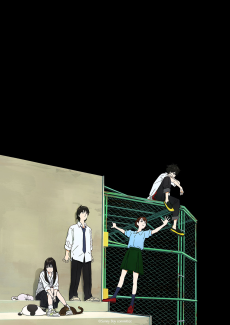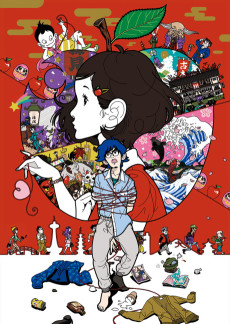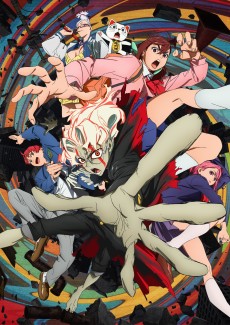YOJOUHAN TIME MACHINE BLUES
STATUS
COMPLETE
EPISODES
6
RELEASE
October 12, 2022
LENGTH
18 min
DESCRIPTION
Spin-off of Yojouhan Shinwa Taikei.
It is August 12th. After the remote control to his boarding house's only air conditioning unit is inadvertently destroyed by spilled cola, "I" devises a plan to return to yesterday in a time machine to recover the remote before it breaks. However, his friend Ozu cannot resist playing with past events, even when it means bringing the universe to the brink of destruction. Now "I" finds himself racing through time to avoid disaster.
(Source: Disney+)
Note: Released in Japan as a standalone film on September 30, 2022 with the same content as episodes 1-5. The anime has an earlier episodic release on Disney+ starting September 14, 2022 and with an exclusive episode 6.
CAST

Watashi

Shintarou Asanuma
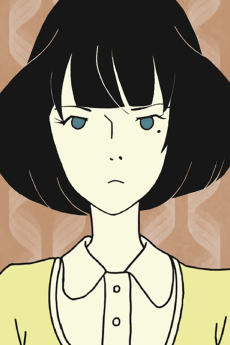
Akashi

Maaya Sakamoto

Ozu

Hiroyuki Yoshino

Tamura-kun
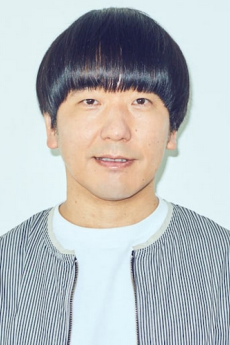
Chikara Honda
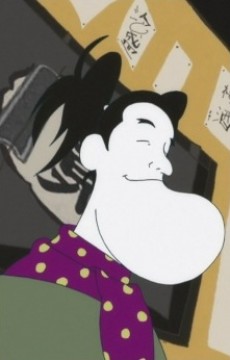
Seitarou Higuchi

Kazuya Nakai
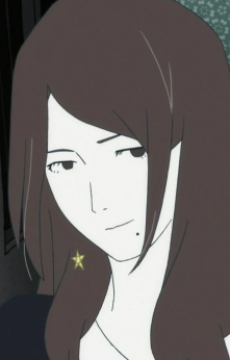
Ryouko Hanuki

Yuuko Kaida
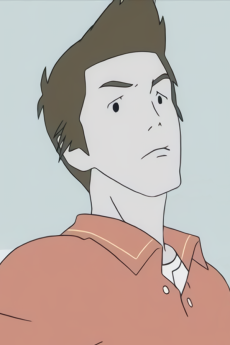
Masaki Jougasaki
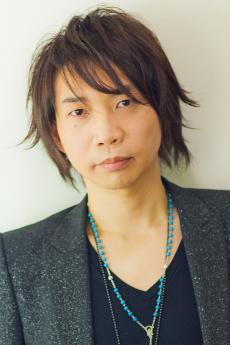
Junichi Suwabe
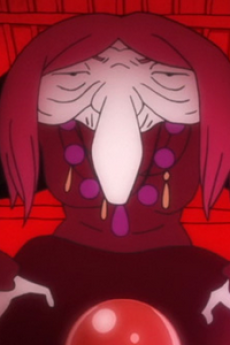
Uranai-baba

Ako Mayama
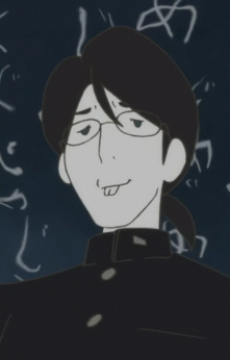
Aijima
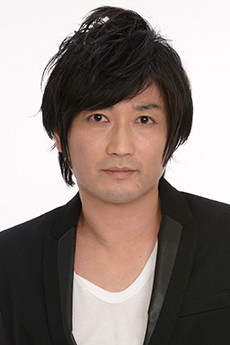
Setsuji Satou
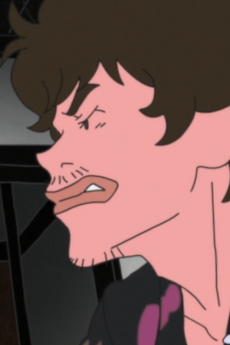
Tosa
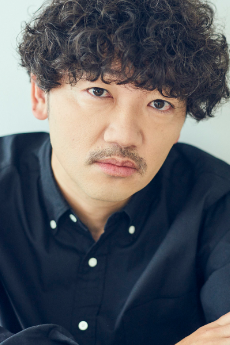
Kazunari Tosa
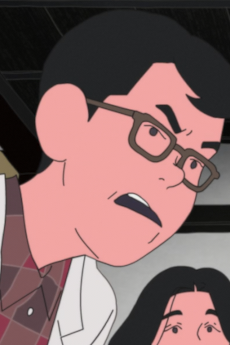
Ueda

Makoto Ueda
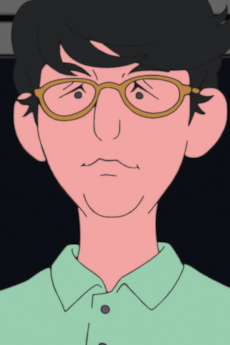
Sakai

Yoshifumi Sakai

Imai
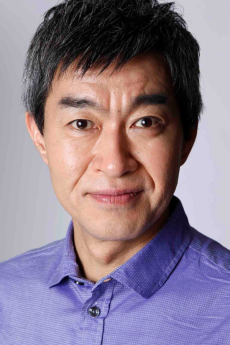
Choo
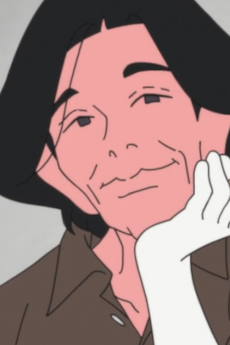
Ishida
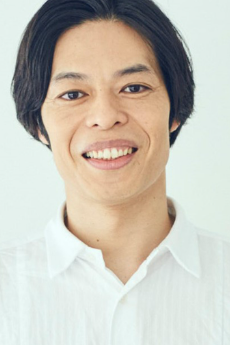
Gota Ishida

Kameda
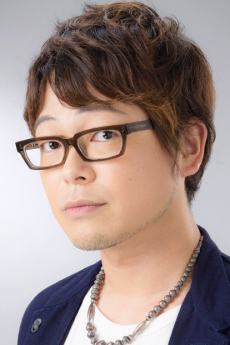
Kazuyuki Okitsu

Nagano
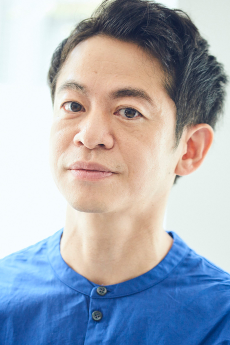
Munemori Nagano

Kizaki

Hiroki Yasumoto

Buin A

Takahiro Shimada
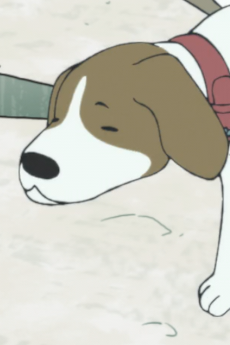
Ketcha
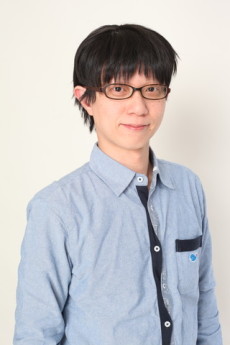
Kousuke Echigoya

Gunshuu A

Kousuke Echigoya

Buin B

Masaomi Yamahashi
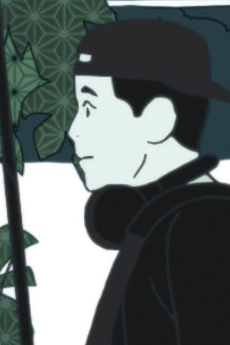
Onsei Danshi

Taichi Takeda

Gunshuu B

Taichi Takeda

Buin C

Shunichi Maki
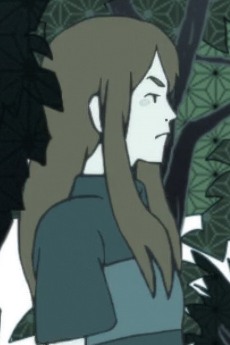
Cameraman Joshi

Ahiru Oohira
EPISODES
Dubbed

Not available on crunchyroll
RELATED TO YOJOUHAN TIME MACHINE BLUES
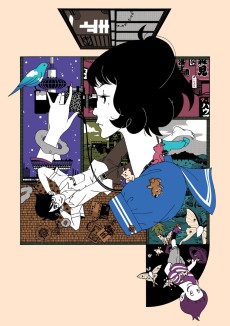 ANIME ComedyYojouhan Shinwa Taikei
ANIME ComedyYojouhan Shinwa TaikeiREVIEWS

Mcsuper
70/100Nostalgic And Fun, But Don't Expect More Than ThatContinue on AniListFirst of all, let me be clear here, this show is not a sequel for The Tatami Galaxy, but I highly recommend you to watch it to get the most out of this show. This review will be written in a way that assumes you have watched The Tatami Galaxy.
This show was essentially a side story in the universe of “The Tatami Galaxy”, and for many fans of that show, this would be extremely nostalgic, seeing the likes of Watashi, Akashi, and Ozu back at it with their ridiculous shenanigans. At its core, this show revolves around the same aspects as the Tatami Galaxy did, themes about grasping what’s in front of you, and the fact that time only goes forward, and you can’t change your past mistakes.
Though, where The Tatami Galaxy used a more philosophical approach to the whole time travel mechanics, Time Machine Blues uses it in a bit more of a comedic approach. In a nutshell, Watashi’s friend, Ozu, spills liquid onto the air conditioning remote in Watashi’s apartment, causing it to break down, and the characters have to find a way to fix it. Pretty dumb, I know, but for a show set in such a ridiculous universe to begin with, it works. The story is quite a lot to take in, and you have to keep up with the rapid speaking, but overall, it felt slightly slower paced than The Tatami Galaxy. Again, if you watched the original, you'd be used to the fast speaking.
Art-wise, it looks good, though it does lack the eccentricity of Masaaki Yuasa’s style, but Shingo Natsume also worked under him for a while, so I did see some shades of that uniqueness, but not to Yuasa’s scale. The facial expressions are a joy to watch still.
Character-wise, it’s very nostalgic, and everyone is quite eccentric in their own ways. Ozu is still extremely funny to watch at times, and each character has their own nice comedic bits to them. From Higuchi, to Hanuki, to Jougasaki, it was great to see all of them back. It was also nice to see more of Watashi and Akashi's interactions, and see Watashi attempt to grab that opportunity in front of him.
Thematically, it’s a bit all over the place, and it’s nowhere near as thought-provoking as The Tatami Galaxy, and that’s not the show’s goal. It serves a light hearted side story, and it does that well enough.
Simply put, if you enjoyed The Tatami Galaxy, you’ll likely enjoy this as well. If you didn’t enjoy the original, then you won’t enjoy this very much either. This show was just a fun time, and there’s not much to take away from it other than that. Just enjoy it for what it is, and I doubt you'll be too disappointed.
Story: 13.5/25
Art: 8.8/10
Music: 8.6/10
Characters: 15.2/20
Enjoyment: 11.2/20
Thematic Execution: 12.8/20Overall: 70.1/100

Jaekoi
90/100Poetry in motion.Continue on AniList
The Tatami Time Machine Blues may not have the same identical style as Masaaki Yuasa’s acclaimed Tatami Galaxy, yet it is a title that lives up to its unrivaled legacy known for poetic storytelling. It is artistically defined by its cultural sensibility, sophisticated writing, and verbose panache, capturing the frenetic repetitions of life in ways that allow one to truly feel its grand revelations. Time Machine Blues reroutes its original concept through Shingo Natsume’s more-than-capable directing, meshing in Yuasa’s former narrative knack with his own individual flair in presentation. Natsume’s abstract ideas come in the form of a cutback on mentally taxing developments, restructuring it with a dose of narrative patience and preplanned mathematics in its implementation of time-travel. Rather than simply engineering itself within alternate timelines for the sake of shock value, it takes a more figurative approach by complexifying one universal actuality.
The rewatch value allows one to view the episodes in reverse, where each individual detail becomes more evident than it once was. At its core, it layers nuance through professed lighthearted comedy, immersive dynamics, and tinges of relevant, meaningful poetry that still hold true to this day. The story grows to respect the eventful happenings of time, an unfeigned deference for all everyday conveniences and inconveniences we preoccupy ourselves in. Watashi, the protagonist, attempts to repair the fragilities of his own doings along with the rest of his different “personalities”, coming to realize the invaluable gravity of why everything flows in the way it is.
Science SARU controls the camera through multiple departments, which can be considered a gripping balance between our youthful imaginations and life’s monotonous echoes. The time-travel idea is a reflection of one’s inherent relationship with change, and how inevitably sought-after it has become, regardless of what tense it’s in. Questionability, as a concept, has always stayed a prevalent characteristic in maturing, an uncertainty when it comes to the “what-if’s” and different possibilities standing before us.
Aside from ASIAN KUNG-FU GENERATION’s musical talent in crafting the opening, let alone the phenomenal blues score, Natsume’s ability to simultaneously carry on Yuasa’s narrative whilst adapting to different circumstances, or Science SARU’s remarkable storyboarding, the tale still manages to discover ways which manipulate us into reflecting and contemplating, as if homaging its former methods. In addition, the tale is still built on the premise of experimental artistry, although with a blend of supplemental plot clarity in exchange for its past episodicism.
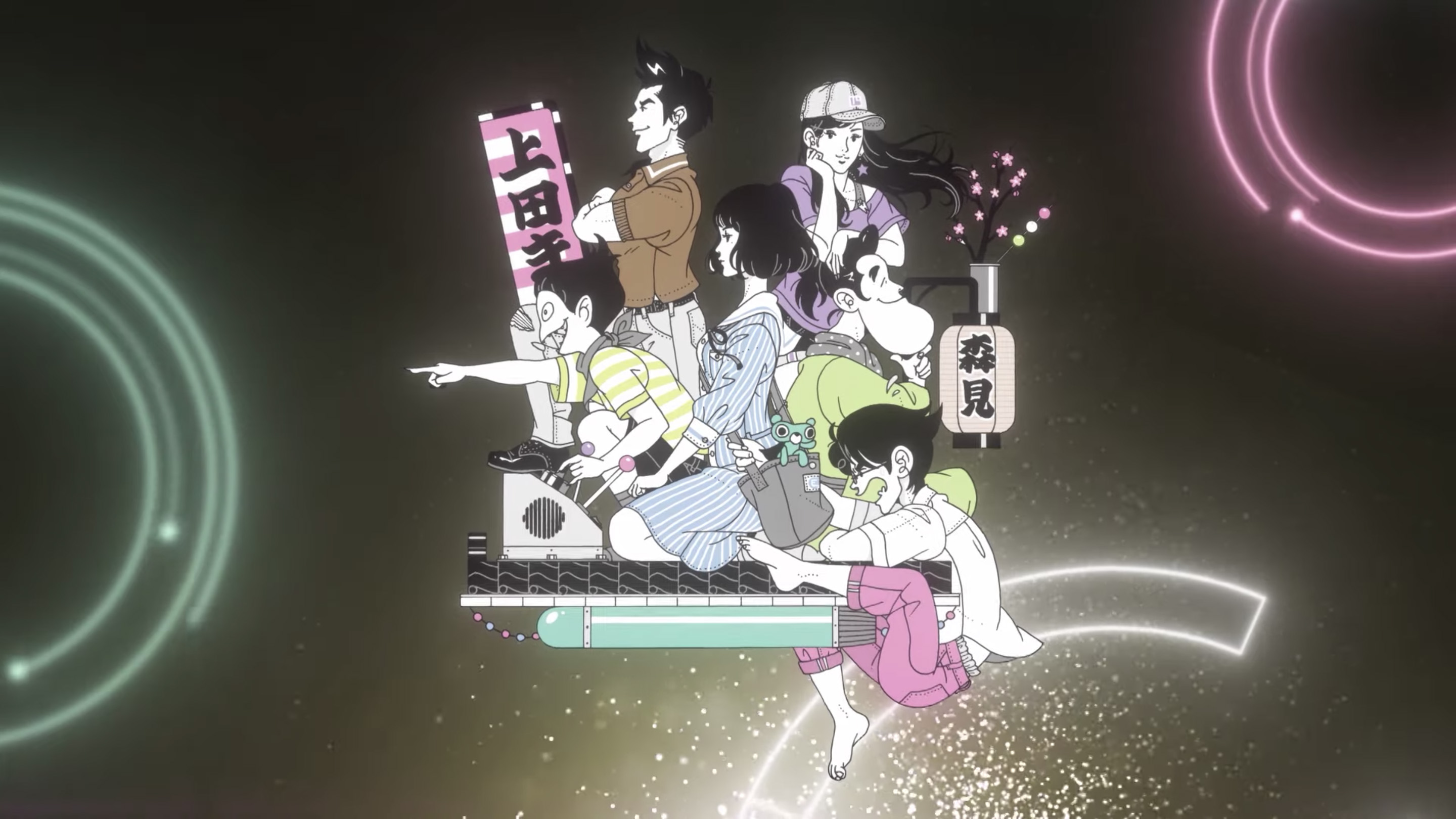
Time Machine Blues underlyingly conveys a message reminiscent of its counterpart, except now, through an entirely distinct narrative perspective which offers the same philosophical authenticity. I say this not only within its refreshing world of unparalleled poetry, amusing wordage, or visual symbolisms, but also from a production and overall viewing experience standpoint.
Episode 5 and 6 looks back on its past desperations in making things consistent, flawlessly transitioning into pure nostalgia. The realizations made can be described as the story’s profound acceptance with the constraints and uncertainties of existence. The characters find solace in the present moment, appreciating the general dichotomy able to be found in time; potentially allowing viewers to recognize why it exists. Aside from its genius in illustrating the wonders and apathies of life, Time Machine Blues imparts an atmosphere of recreation and profundity through a spin-off biography of the protagonist. The tale encourages one to acknowledge the story-like nature in all things, conveying an artistic parallel between the unpredictability of time and change. We venture through its causalities, whereas the story instills its unfathomable value that'll last a lifetime.
Purpose in of itself is universal, an intrinsic conceptualization bound to every storyline.

TheAnimeBingeWatcher
70/100Not so much a sequel as a simplified retread, but that doesn't mean it's not fun.Continue on AniListIs there a point in making a sequel to The Tatami Galaxy?
Most likely, the answer is no. Masaaki Yuasa’s seminal 2010 exploration of college life and choice paralysis was as complete and self-contained as a story could possibly be. It spent 11 episodes saying everything it needed to say and left without any loose ends to tie up. And not only are there no real narrative threads to pull on for a follow-up, there’s no real way to recreate the complex time loop gimmick that drove its structure without breaking the narrative machinery in half. Tatami Galaxy was an incredible show, but it was also a show that could only ever work once. So while this twelve-years-later sequel might be little more than a fun nostalgia trip, can you really blame it? There’s nothing that Tatami Time Machine Blues can do that Tatami Galaxy didn’t already do first and better. Might as well just make like an aging rock band and play all the old hits again, secure in the knowledge that what worked then will still work now, even if it lacks the originality and nuance that made it so special to begin with.
To be clear, I have no problem with Tatami Time Machine Blues essentially just being a victory lap reminding you of how great Tatami Galaxy was. Pointless or not, even just existing in this world again is fun enough to justify checking this six-episode OVA out. Where else would I get a visual style this bizarre and expressive, with Shingo Natsume replicating Yuasa’s aesthetics to near perfection? Where else would I get dialogue this layered and verbose and packed full of interesting trivia? Where else would I get the uniquely raucous dynamic between the cynical nameless protagonist, his cackling personal shoulder demon Ozu, and the various stand-out side characters that populate the art-deco streets? There is nothing quite like Tatami Galaxy, not even among Yuasa’s other work. So even if this OVA is just an excuse to revel in the good times again, well, they’re still some damn good times. Just don’t expect anything like a proper continuation, because you’re bound to be disappointed.
Actually, even calling Time Machine Blues a sequel feels inaccurate. We’re still at the same college campus, still going through the motions as if it’s just any other go round the time loop- and indeed, the final episode quasi-canonizes this show as just one more revolution through Watashi’s failed attempts at reaching a rose-colored college life. No, it would be more accurate to descibe Time Machine Blues as a simplified retread. It’s got all the same characters, all the same themes, a just-different-enough use of time travel (as the title implies, this plot is all about time machine shenanigans and trying not to destroy the universe with a time paradox), and ultimately comes to the same basic conclusion as its predecessor. Watching this show feels very much like someone took Tatami Galaxy and simplified it for a lower reading level, as it were. You know how a lot of works of classic literature like, say, Great Expectations have graphic novel versions made of them to make them more easily digestible to younger readers? Like, maybe you’re not ready to tackle such a dense, wordy novel on its own terms, but you can still experience the story through comic form and get most of the point? That’s what Time Machine Blues reminds me of more than anything. It’s Tatami Galaxy for audiences who feel like Tatami Galaxy is too complicated and want a version of the story that doesn’t demand so much brainpower trying to keep up with it.
And again, I don’t mean this as a criticism! There’s plenty of value in making challenging works more easily accessible to everyone. But if you are someone who’s comfortable meeting Tatami Galaxy on its own footing, then this reader’s digest version is going to feel lacking by comparison. The time machine antics are fun, but they pale in comparison to the original’s thematically brilliant time loop structure. The ultimate conclusion is fine, but it lacks the sheer catharsis of the original’s beautiful climax. Even the animation, as near-flawlessly as Natsume recreates the series style, doesn’t hit quite the same imaginative heights as Yuasa was able to reach. Which is a severe nitpick, I’m aware, but why settle for a strong A when you could have an outright flawless A+? As art, as entertainment, as a statement on the importance of making the most of your life and not waiting for someone to work things out for you, Tatami Time Machine Blues is perfectly fine on its own terms, but just a little bit weaker and more superfluous than what came before it. The only thing it really adds, instead of just repeating, is that Akashi gets a little more personality as a deadpan scatterbrain who’s intellect tends to outstrip her common sense. Which I did like: Akashi and Watashi’s romance was always the weakest part of the Tatami universe, so making her character more interesting is a very welcome addition. But it’s ultimately a drop in the ocean of a show that’s otherwise a perfect example of the “everything the same, but worse” school of sequel writing.
You know what, though? At the end of the day, all that really matters is if I had fun or not. And for all my complaints, I absolutely had fun with Time Machine Blues. It’s little more than a victory lap, but it’s a well-deserved lap, and one that still mostly captures all the things that made Tatami Galaxy so entertaining, if not what made it exceptional. And maybe someday, if I feel like re-experiencing this kooky world but don’t have much brainpower to spare, this show will be just the low-carb alternative I’m looking for.
SIMILAR ANIMES YOU MAY LIKE
 ANIME ComedyUchouten Kazoku
ANIME ComedyUchouten Kazoku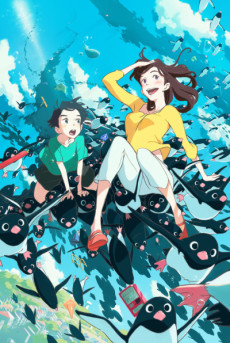 MOVIE DramaPenguin Highway
MOVIE DramaPenguin Highway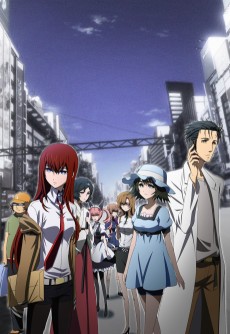 ANIME DramaSteins;Gate
ANIME DramaSteins;Gate OVA MysteryTwilight Q
OVA MysteryTwilight Q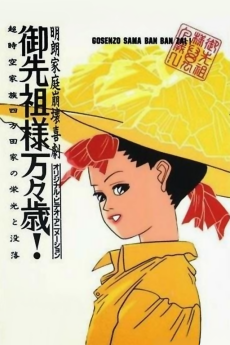 OVA ComedyGosenzo-sama Banbanzai!
OVA ComedyGosenzo-sama Banbanzai!
SCORE
- (4.05/5)
TRAILER
MORE INFO
Ended inOctober 12, 2022
Main Studio Science SARU
Favorited by 389 Users
Hashtag #四畳半タイムマシンブルース


